
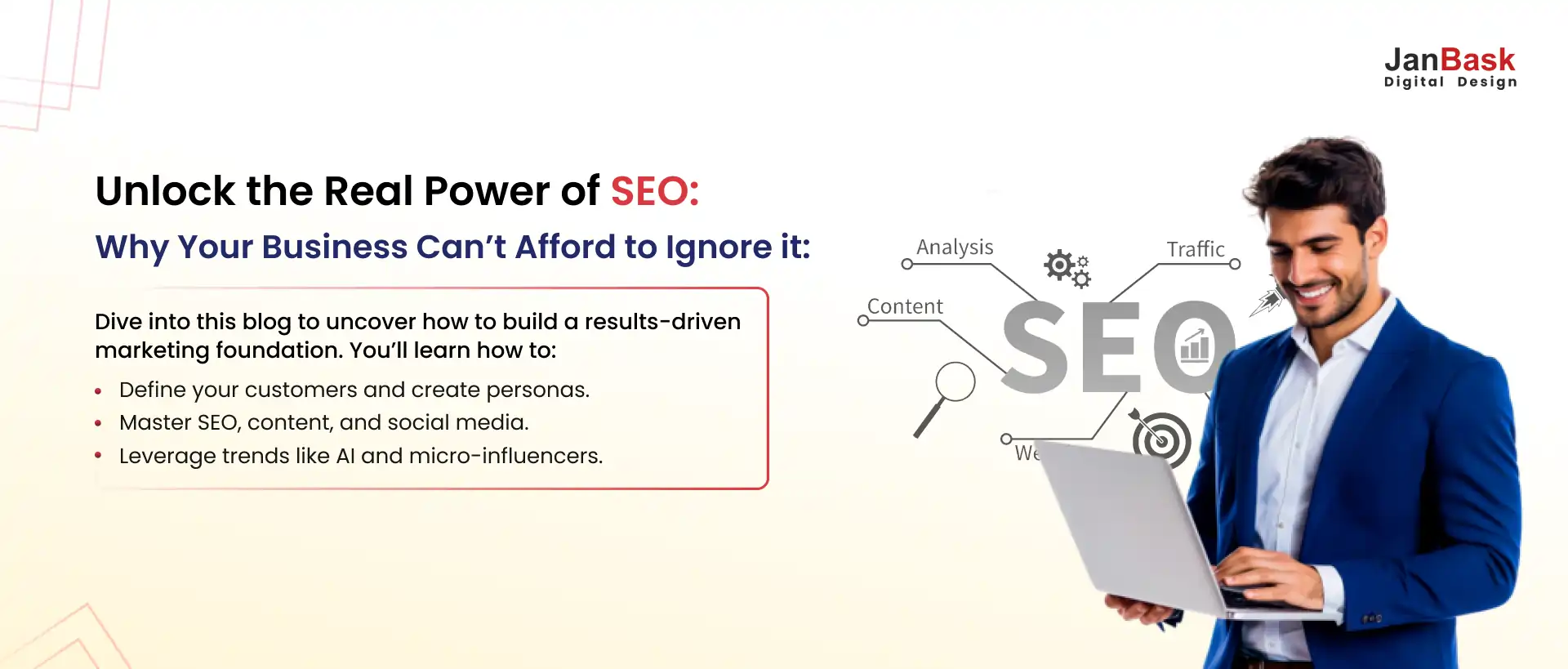
Have you ever wondered why some businesses seem to attract a steady stream of customers online while others struggle to gain visibility? With 68% of all online experiences beginning with a search engine and more than half of website traffic coming from organic search, your visibility on Google and other search platforms can make or break your business. Despite the fact that 81% of shoppers conduct their research online, many businesses continue to undervalue the importance of search engine optimization in their marketing strategies.
SEO isn’t only about keywords anymore. It's all about establishing trust, giving your audience what they want, and ensuring that every visitor has a positive experience on your website. In this blog, you'll learn why SEO is so important for any business looking to stand out, grow, and capitalize on every digital opportunity.
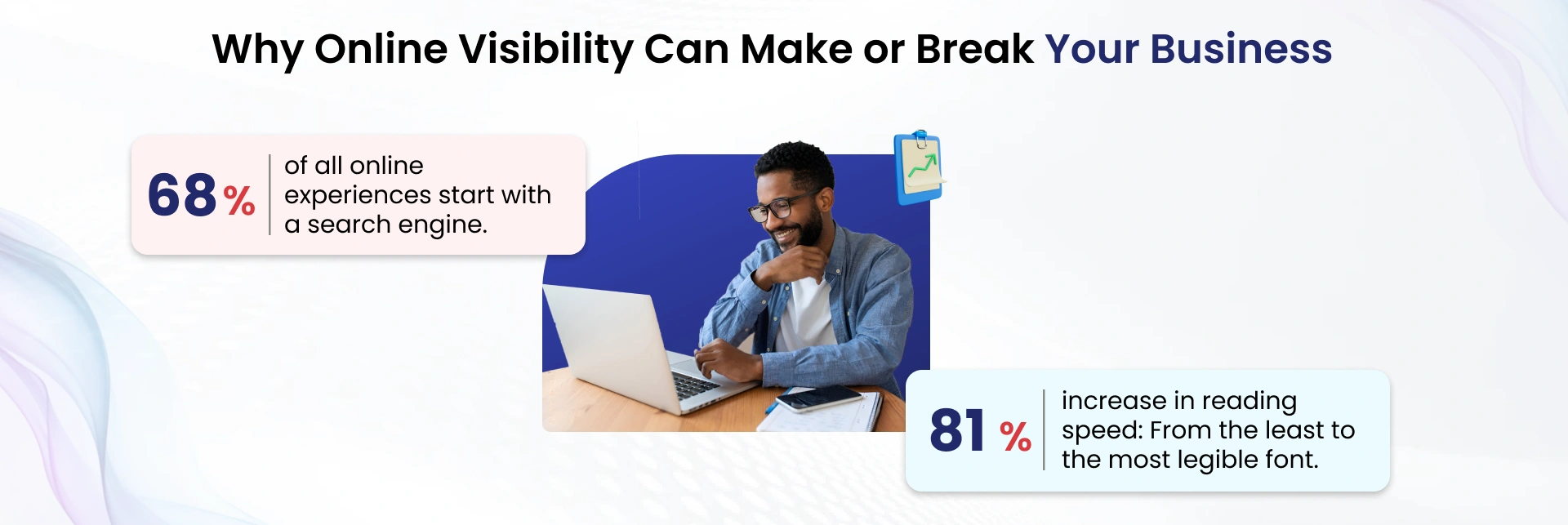
Search engine optimization, or SEO, is more than just getting your website to the top of Google's results. It makes it easy for people who want your goods or services to find you online. People will miss out on good customers if they can't find your business when they search. This is especially true since most purchases now begin with an online search.
These days, SEO is more than just links and keywords. Smart technology is now used by search engines to connect people with the best and most useful websites. That means your site should be simple to use, work well on all gadgets, and answer real questions that people are asking. When you do SEO right, people will trust you, your business will grow, and you won't have to spend a lot on ads. Focusing on what your visitors want and making your website really useful will help you stand out online in the long run.
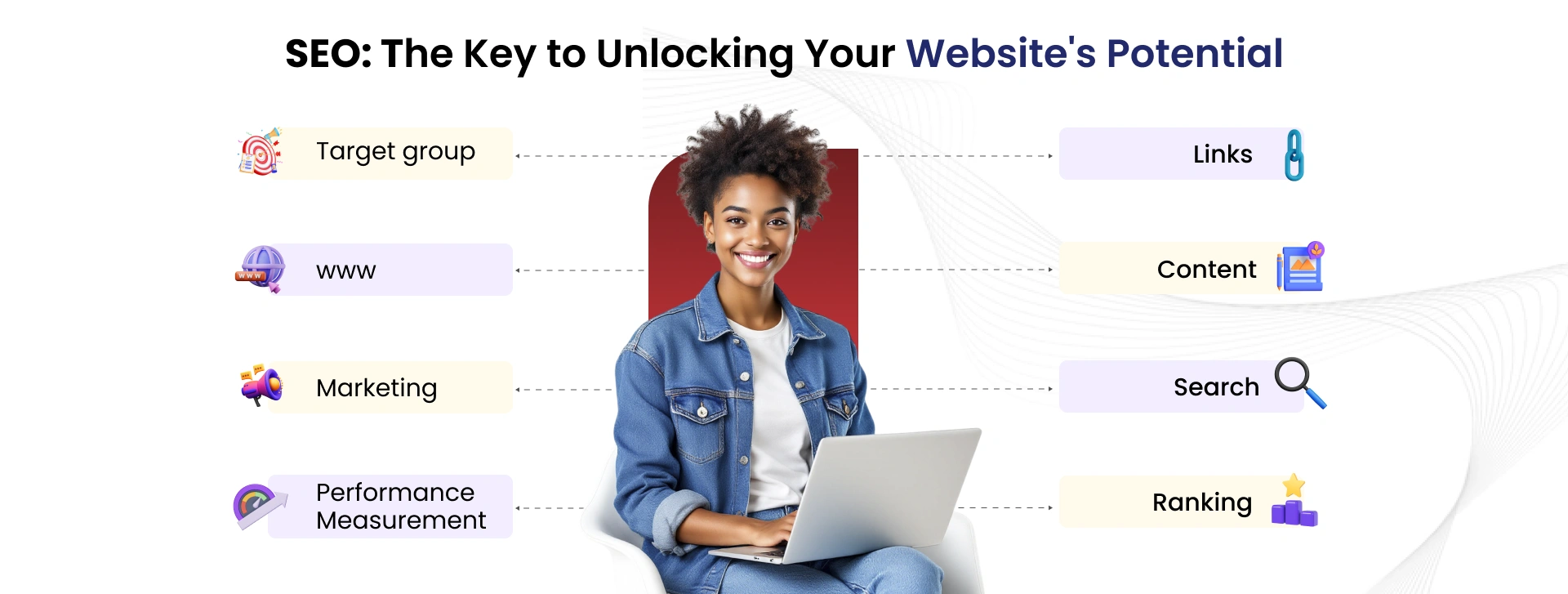
Understanding why SEO is important for business begins with identifying its fundamental components. Modern SEO is not a single strategy but rather a carefully balanced combination of three critical components. These pillars work together to establish a digital presence that search engines and users value. Let's look at how each pillar contributes to your overall SEO success.
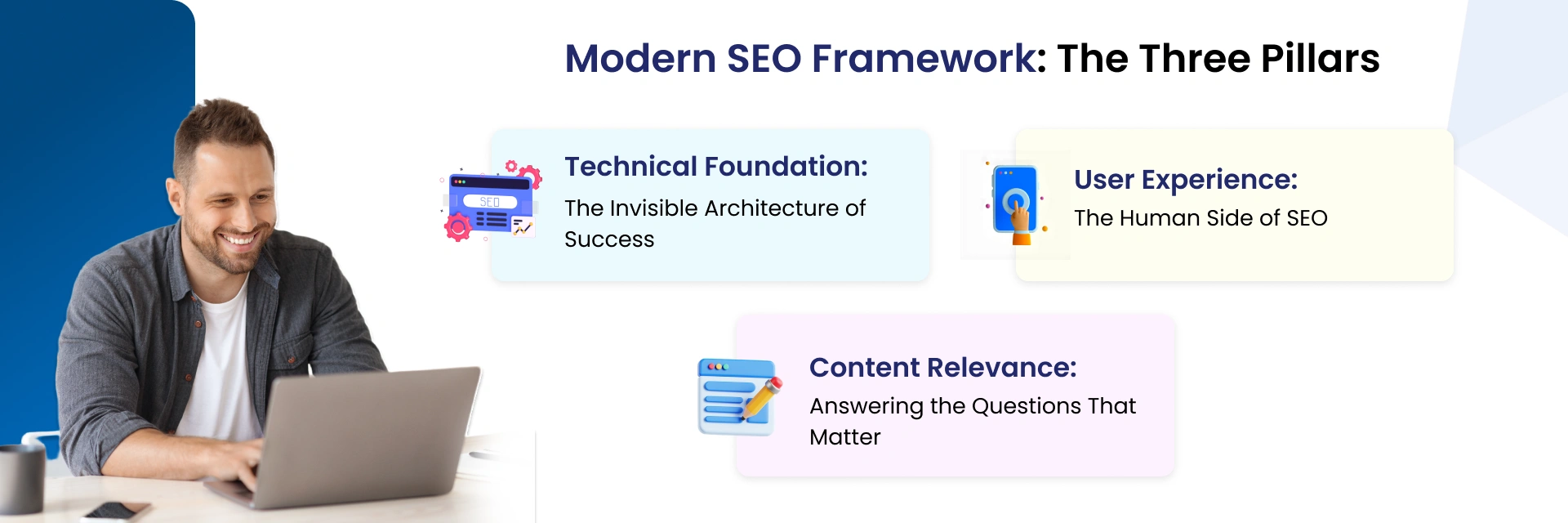
Your website's technical foundation works in the same way that a building's plumbing and electrical systems do; visitors rarely notice it until something breaks. However, search engines prioritize these technical elements. Site speed has emerged as a critical ranking factor; with each second of delay, bounce rates increase by 32%. Mobile responsiveness is no longer optional; it is required, as Google now uses mobile-first indexing to determine rankings.
Your site architecture, how pages link together, and how information is organized, direct both search engines and users through your content. This includes proper URL structures, logical navigation paths, and unambiguous site hierarchies. Technical SEO also includes secure connections (HTTPS), structured data markup, and XML sitemaps, which help search engines understand and index your content correctly. When your technical foundation is solid, everything built on it has a better chance of succeeding.
Content remains at the heart of SEO, but what makes content relevant has shifted dramatically. Today's content must be aligned with user intent, the true purpose of search queries. Someone searching "best coffee makers" has different requirements than someone searching "buy espresso machine near me," and your content strategy must account for these differences.
Semantic search looks beyond specific keywords to determine context and meaning. This means that your content should cover all topics thoroughly, using natural language and related concepts. Quality has surpassed quantity as the primary metric, with search engines rewarding depth, accuracy, and expertise. Every piece of content should demonstrate your expertise while also adding genuine value to your audience. This approach does more than just satisfy algorithms; it also builds trust with your visitors, converting them into loyal customers who regard you as an expert in your field.
User experience is a key part of modern SEO and one of the most important marketing tactics for small businesses. Search engines notice how people interact with your website. If visitors stay longer, view more pages, or return often, your rankings can improve. But if they leave quickly, it signals your site isn’t meeting their needs.
Clear menus, simple navigation, and fast load times all help keep users engaged. In fact, more than half of mobile users will leave a site if it takes over three seconds to load. Google now uses these factors, like speed and stability, as part of its ranking system.
By focusing on user experience, you make your website more helpful and enjoyable for visitors. This not only boosts your SEO, but also supports all your other marketing tactics for small businesses by encouraging people to stick around, explore, and become loyal customers.
The true power of SEO emerges when these three pillars work together. Technical excellence lays the groundwork for great content, which results in an exceptional user experience. This integration explains why SEO is so important for long-term business growth. Individual tactics may change as algorithms evolve, but the fundamental structure remains constant. Understanding and implementing all three pillars will result in a resilient digital presence that can adapt to changing search landscapes while consistently providing value to your audience.
Understanding why companies invest in SEO necessitates looking beyond simple traffic metrics to the core value proposition. SEO is more than just rankings; it is a vital business asset that increases visibility, fosters trust, and generates long-term competitive advantages. Let's look at why smart businesses regard SEO as an essential investment rather than an optional marketing expense.
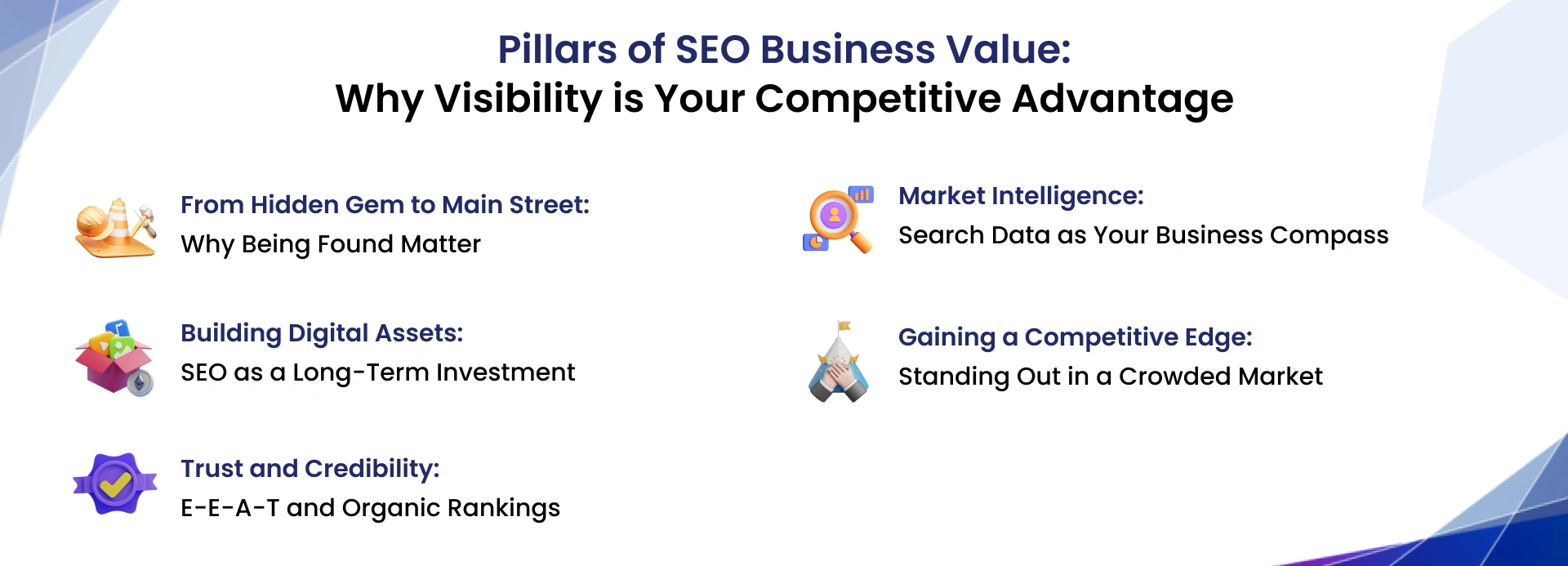
Consider your company to be a spectacular restaurant hidden down a quiet alley. The food is delicious, and the service is friendly, but if no one knows you exist, your tables remain empty. This is what happens when your company isn't listed in search results. SEO is the marker that directs people to your door. In today's digital age, most customers start their journey with a search. You can't compete for their attention or trust if your company isn't where they're looking.
Unlike paid ads, which disappear the moment you stop funding them, SEO is about creating digital assets that increase in value over time. Every optimized page, useful article, and earned backlink contributes to your company's online presence. This means that your SEO investment will continue to pay off, bringing organic search traffic and brand authority long after the initial work is completed. So what can SEO do for your business? It creates appreciating assets while paid channels depreciate immediately. When you ask, "Why is SEO important for business?" consider it like planting seeds for a year-round harvest.
People naturally trust what they find. When your company appears in organic search results, potential customers know you're trustworthy and relevant. Google's E-E-A-T principles, experience, expertise, authoritativeness, and trustworthiness, are now central to how search engines assess your site. By consistently providing useful, well-researched content and demonstrating your expertise, you can establish a reputation that attracts visitors and encourages them to stay, engage, and return.
SEO is more than just a marketing tool; it's a window into your customers' minds. Every search query, keyword trend, and click reveals what your target audience wants, what problems they're attempting to solve, and how their needs are evolving. Analyzing this data allows you to improve your products, services, and messaging to better match actual demand. This is how SEO benefits business, not just by driving traffic, but also by guiding better decisions at all levels.
In a world where everyone is competing for attention, SEO gives you the tools you need to stand out. You can claim the top spots in search results by targeting the right keywords, optimizing your content, and understanding your competitors' strategies, even if you are competing against larger brands with bigger budgets. SEO levels the playing field, allowing your company to be discovered by the people who matter most, just when they're ready to act.
SEO is more than just being seen; it is also about being chosen, trusted, and remembered. When you invest in SEO, you are investing in your company's long-term health and growth, creating a foundation that will support all other digital efforts.
It becomes obvious why SEO is so important for businesses when you look at how it helps them grow in the long term. We must constantly reinvest in traditional marketing methods. SEO, on the other hand, builds momentum over time, creating a cycle of trust, visibility, and growth. Let's look at how search engine optimization can go from being a marketing strategy to a key part of growing a business.
You can think of paid ads as renting visibility and SEO as building equity. When you run paid ads, people start visiting right away, but as soon as you stop spending money on them, they stop. This creates a dependency cycle where growth is reliant on your advertising budget. In contrast, SEO has a compounding effect, which means that each optimization builds on the ones that came before it.
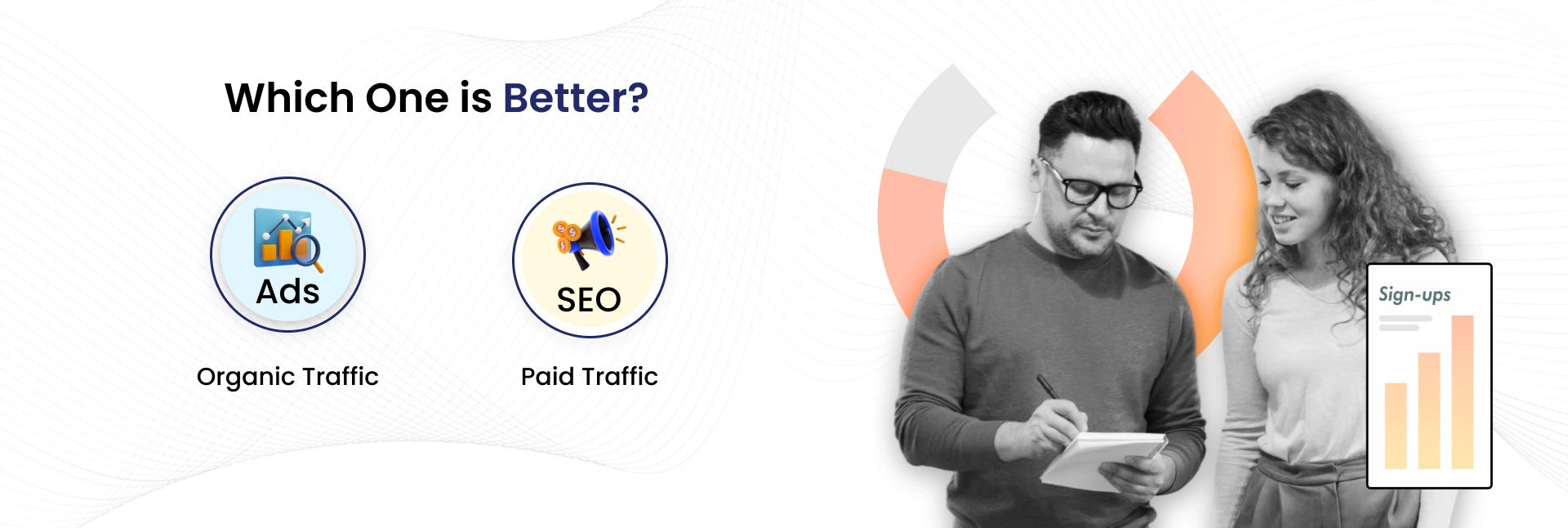
Months or even years after publication, your optimized content continues to benefit you. Over time, a well-optimized blog post could rank for dozens of keywords, which would bring in more visitors without costing anything extra. This is why SEO is important for your business's long-term growth; it's the difference between putting up a temporary billboard and building a storefront that people will want to visit all day and night.
When you use SEO, you don't just get more visitors; you get the right visitors at the right time in their decision-making process. People who search for specific information about your products or services are actively looking for the answers you offer. You can connect with potential customers right when they need you by making sure your content matches these search queries.

This matching of intent is what makes leads from SEO so valuable. Visitors who find your site through organic search are 14% more likely to buy than visitors who discover you through other channels. They aren't just happening upon your business; they are actively seeking what you have to offer. This is why search engine optimization is important for companies that want more than just traffic: they want qualified leads who are ready to buy.
In today's world full of information, people don't claim to be authoritative; they earn it. With SEO, you can make your business a thought leader in its field in a planned way. By making useful content that solves problems, answers questions, and shows that you know what you're talking about, your brand will naturally become considered an authoritative voice.
SEO authority is more about how people view your business than rankings. When your website consistently shows up in search results for queries related to your industry, people start to think of you as an expert in that field. Customers start to believe what you say, which builds trust and leads to better relationships and more sales. This trust factor shows how SEO helps build a business's reputation, which is important for long-term growth.
These days, SEO strategies are more about optimizing for the whole customer journey rather than just a few keywords. From becoming aware of the product to making a final purchase decision, there are different search behaviors and information needs at each stage. By connecting your SEO strategy to these stages of the journey, you give people more ways to find your business.
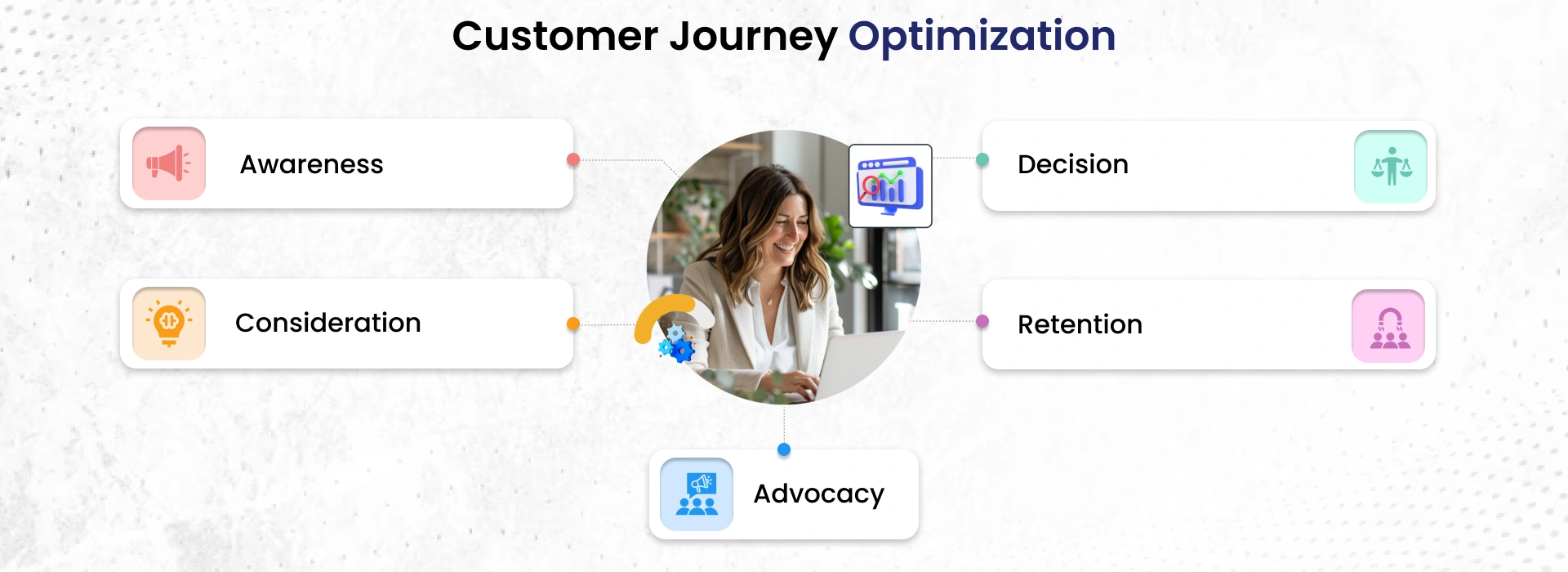
Someone who is aware might search for "how to fix a leaky faucet," while someone who is ready to buy would search for "plumber near me is open now." By making content for both queries, you can reach potential customers at different stages of their decision-making process. That's why SEO is so important for businesses that want to guide prospects through every step of the buying process and make the most of conversion opportunities along the way.
One of the best things about SEO is that it can be used on a large scale. It doesn't matter if you're a small bakery in your neighborhood or a big software company; SEO strategies can be changed to fit your target market and grow with your business. You could start with local SEO, making sure your site shows up in "near me" searches and local directories, and then slowly expand your reach to cover more areas.
 SEO is based on data, which also helps find new market opportunities. Keyword research can help you find new customer needs or untapped niches that you can use to help you develop and expand your business. This versatility shows that SEO can help your business in more ways than just getting you more traffic. You can also use it as a tool for market research and growth planning.
SEO is based on data, which also helps find new market opportunities. Keyword research can help you find new customer needs or untapped niches that you can use to help you develop and expand your business. This versatility shows that SEO can help your business in more ways than just getting you more traffic. You can also use it as a tool for market research and growth planning.
The way SEO contributes to long-term growth is by building on itself. Every piece of optimized content, every technical fix, and every backlink you earn builds up your digital foundation. In a digital world that is getting more and more competitive, this foundation makes your business more visible, more trustworthy, and stronger. That's why SEO isn't just about getting higher rankings; it's also about building a growth engine that will keep your business going for years to come.
In the digital landscape, Niche businesses encounter distinctive obstacles, frequently competing with larger organizations that possess greater resources and budgets. However, the agility of niche businesses offers unique SEO advantages that can level the playing field. SEO is a potent equalizer that enables niche businesses to surpass their larger competitors in specific markets when strategically implemented. Let us investigate the potential of SEO to foster sustainable growth and establish a robust digital presence for your business. The importance of SEO for niche businesses becomes clear when considering how it levels the playing field against larger competitors.

Corporate giants are incapable of surpassing the intimate comprehension of their local markets that niche businesses possess. This local knowledge enables you to generate content that is specifically tailored to the needs, interests, and pain points of your community. By optimizing for location-specific keywords, establishing local backlinks, and maintaining an active Google Business Profile, you can establish your business as the premier solution in your region. The combination of your physical presence in the community and locally optimized digital content generates a potent synergy that fosters trust and recognition among nearby customers who favor supporting local businesses over faceless corporations. This approach elucidates the significance of SEO in the context of business growth.
Small businesses can prosper by cultivating profound expertise in specialized niches, whereas large businesses frequently employ broad-based strategies to attract a wide range of audiences. By concentrating your SEO efforts on highly specific keywords and topics within your area of specialization, you can develop authoritative content that comprehensively addresses customer needs in a manner that generic content is unable to.
This concentrated strategy enables you to dominate search results for specific queries in which competition is less intense. It is possible that your business does not appear for every search term in your industry. However, by consistently demonstrating expertise in your specific niche, you can establish yourself as the recognized authority for specific solutions, thereby establishing a loyal customer base that appreciates your specialized knowledge.
Larger organizations envy the inherent agility of small businesses, which enables them to pivot rapidly without the need to navigate multiple layers of corporate approval. This responsiveness is a substantial advantage in SEO, as it necessitates rapid adaptation in response to algorithm updates and search trends. When Google releases an update or changes in consumer search behavior occur, your small business can promptly modify strategies, test new approaches, and implement changes that may require larger competitors months to implement.
This resourcefulness also extends to content creation, where you can quickly address emerging topics, seasonal trends, or local events, ensuring that your digital presence remains fresh and relevant. In contrast, larger companies adhere to rigid content calendars that are planned months in advance.
The most potent marketing asset of a small business is frequently its human face, which generates opportunities for personal brand development that humanize your digital presence in a manner that corporate entities are unable to replicate. By incorporating your personality, story, and expertise into your website and content, you convert cold business transactions into meaningful human connections.
The demand for genuine relationships between businesses and their customers is on the rise, and personal brand-driven SEO is a valuable tool for establishing this connection prior to their arrival at your establishment. Blog posts, about pages, and social profiles can be enriched with your personal experiences, insights, and distinctive perspective, resulting in content that is both emotionally engaging and well-ranked. This feature is particularly beneficial for potential customers who are interested in learning more about the individuals with whom they are conducting business.
The search landscape keeps changing quickly, which changes how businesses connect with customers. Learning about these new trends isn't just a way to stay up-to-date; it's also a way to make sure that your digital presence will still be relevant in the future, especially as the market gets more competitive. Let's talk about the main changes that are happening in search and why it's important to adapt to them if you want to stay visible.
As time has gone on, search engines have changed from simple keyword matchers to complex knowledge systems powered by AI that can understand context, user behavior, and even emotional intent. Because of the AI revolution, your SEO strategy needs to go beyond simple keyword optimization and focus on making content that solves users' problems in a wide range of ways.
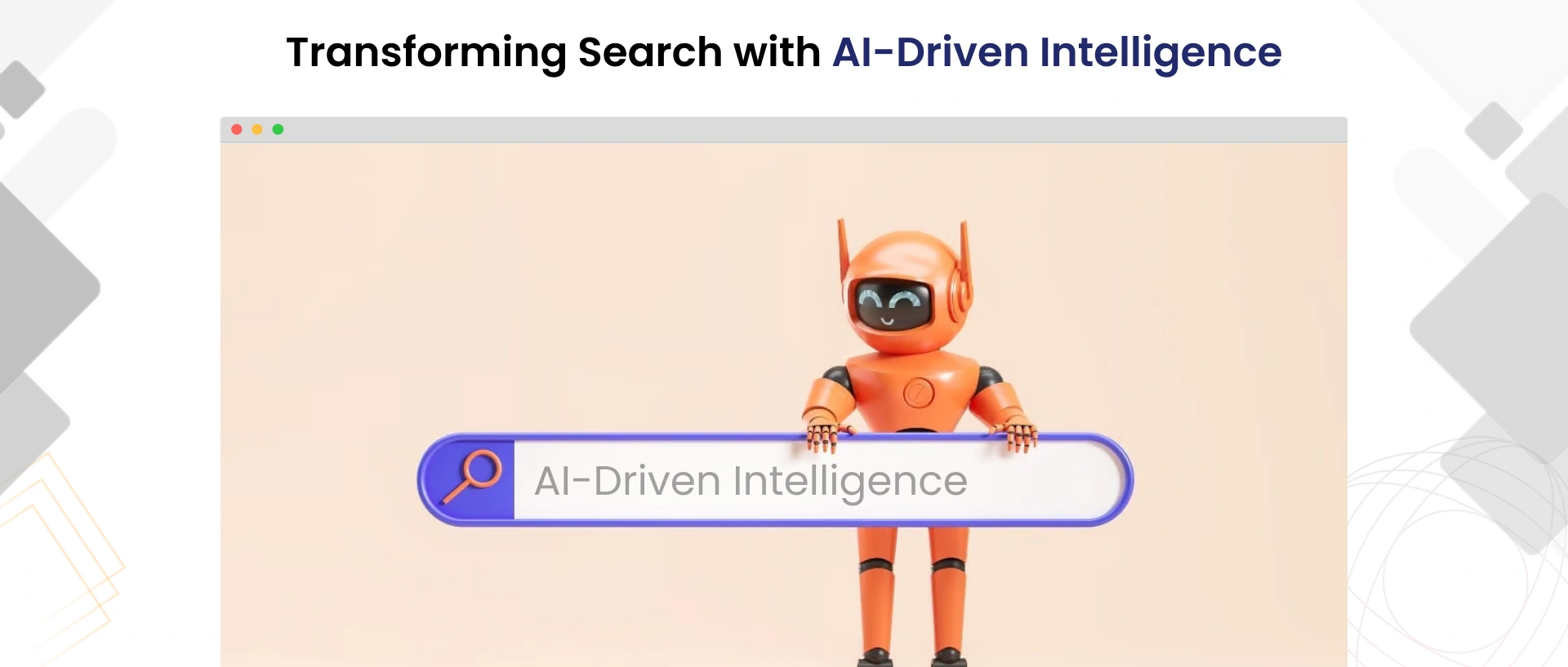
Your business needs to create content that shows it is an expert in the subject and answers any questions users may have about it. More and more, as machine learning algorithms get better, they will favor websites that show real expertise and offer real value. This will make shallow strategies useless.
Voice search is popular because it is easy to use and works on many devices, from smartphones to smart speakers. On the other hand, visual search lets people find what they need by using pictures instead of words. For this big change to take place, your content needs to be changed to fit conversational patterns that are true to how people talk.

Why is SEO important for business in this context? Because these other ways of searching are becoming the main way that some groups of people do their searching, they might not even use traditional text-based search anymore. When businesses don't optimize for these modes, they risk losing a lot of customers who use those modes.
What started out as "mobile-friendly" turned into "mobile-first" and is now "mobile-only" for many users who do all of their digital work on their phones and tablets. With this change, mobile optimization is no longer just a ranking factor; it's now a basic requirement for being online.

For your business to succeed with SEO, you need to focus on making sure pages load quickly, are easy to use with touch screens, and have content that is formatted to fit smaller screens. Not only does it affect your search rankings, but it also has a direct effect on user experience metrics, which in turn affect your search visibility.
The Trust Imperative (E-E-A-T) stands for Experience, Expertise, Authoritativeness, and Trustworthiness. These four things are now central to how search engines judge the quality of content. As a result of this framework, businesses will have to show they are experts in the real world through high-quality, authoritative content instead of using algorithmic tricks.
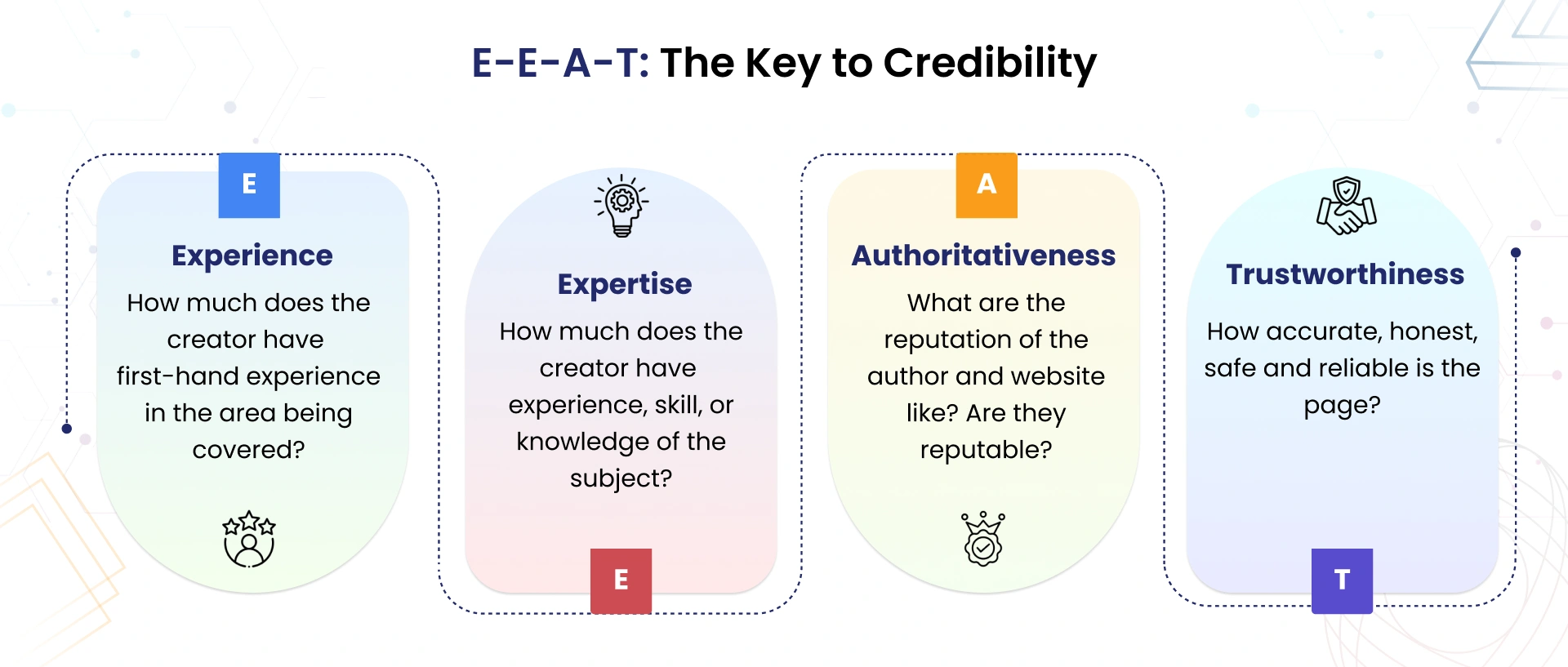
What does search engine optimization have to do with this? Because E-E-A-T isn't just a ranking factor; it's also a business differentiator that tells the difference between good content and bad resources. To put this into practice, this means having credentials, expert contributors, clear information about your business, and content that really helps people solve problems.
Search engines try to guess what users want even before they say it. They do this by looking at past actions, location information, and other factors that are relevant to the user's situation to give them information they might need before they even search for it. With this feature, businesses need to know about and create content for the whole customer journey, not just for certain search queries.
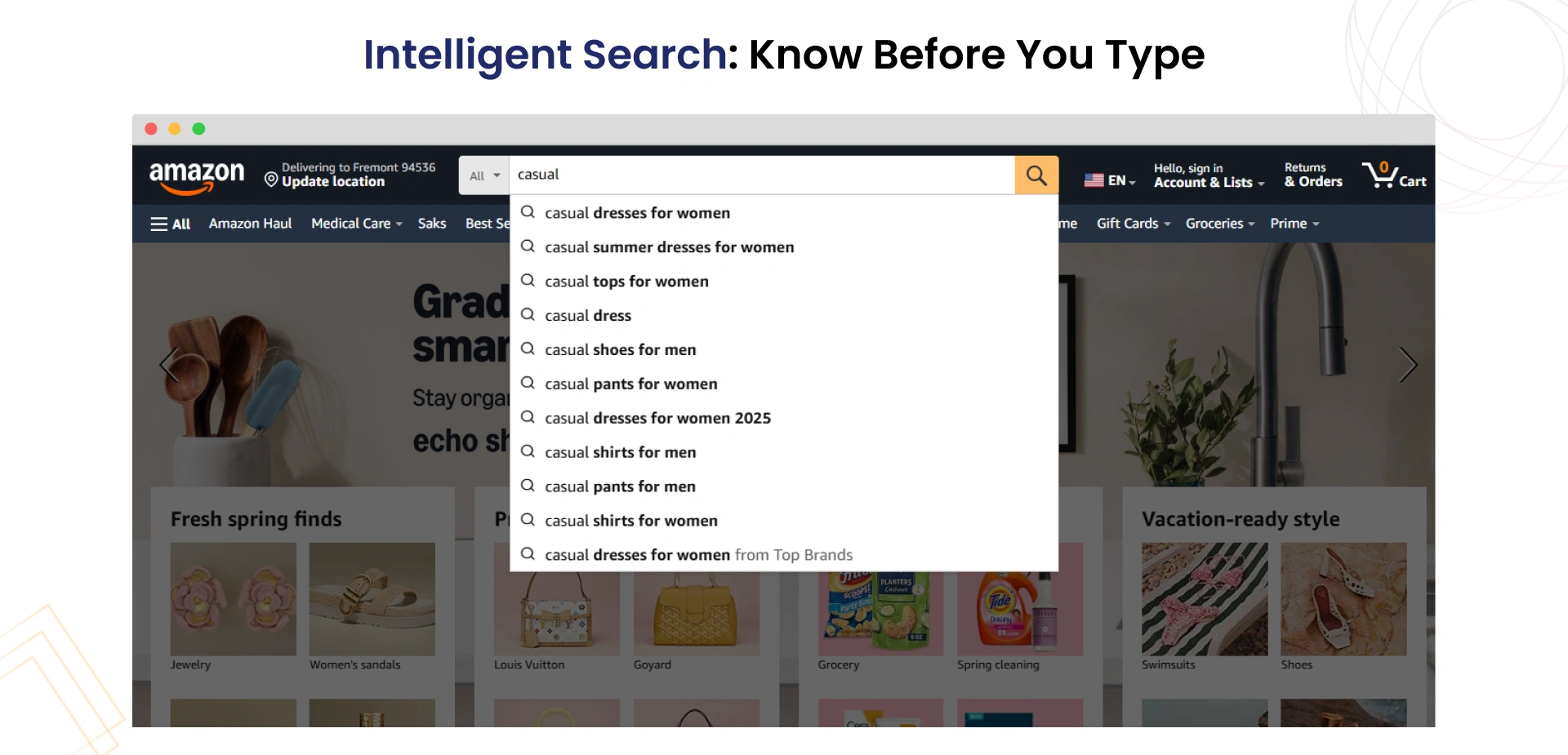 What can SEO do for your company in this uncertain world? It lets you place your content at key decision points and make complete resources that answer both main questions and follow-up ones. This strategy will help people find your business even as search becomes more anticipatory and less reactive. It will also keep you in touch with customers at all stages of their decision-making process.
What can SEO do for your company in this uncertain world? It lets you place your content at key decision points and make complete resources that answer both main questions and follow-up ones. This strategy will help people find your business even as search becomes more anticipatory and less reactive. It will also keep you in touch with customers at all stages of their decision-making process.
Distinguishing fact from myth is the first step toward comprehending the significance of SEO for businesses. We’ll answer why SEO is important, debunk myths, and clarify how important SEO is for modern businesses. Let's clear up the haze and provide you with direct answers, so you can decide on your digital strategy with confidence.
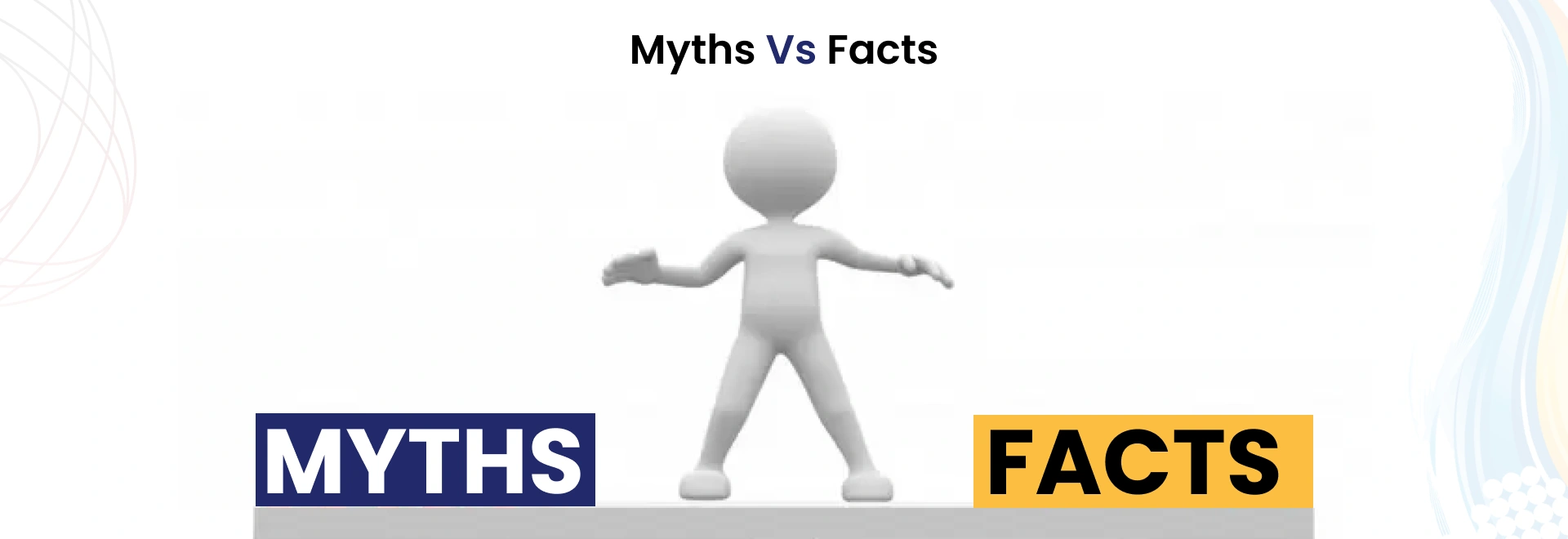
The Truth: SEO is more crucial now than it was in 2015. Your digital visibility is still closely linked to search, as 68% of online experiences still start with a search engine. The way SEO operates, not if it works, has changed.
The Myth Busted: According to some, social media and AI have rendered SEO outdated. In actuality, AI has changed SEO from keyword stuffing to all-encompassing value creation, increasing its influence for companies that adjust. People continue to use search engines as their main resource for problem-solving.
The Truth: Modern SEO is about more than just keywords. Technical skills, user experience, and content quality all matter. Today’s search algorithms focus on context, intent, and topic relationships—not just keyword use.
The Myth Busted: Using too many keywords in your content won't improve your rankings. These days, search engines assess how thoroughly you cover subjects, how well users interact with your material, and how reputable your website is in your sector.
The Truth: Small businesses often have key SEO advantages, especially in local markets. Agility, community presence, and niche expertise can help you outrank large competitors by targeting specific, less competitive queries.
The Myth Busted: Large budgets aren't always necessary for effective SEO. Quality content, local optimization, and a strategic focus on particular audiences frequently produce better results than more general strategies that require larger financial investments. What benefits can SEO offer your company? In comparison to bigger rivals, it can level the playing field.
The Truth: Paid ads rent visibility; SEO builds digital equity. Even though paid advertising produces results right away, it ceases to be effective as soon as you stop making payments. Long after the initial investment, SEO produces enduring assets that keep producing leads and traffic.
The Myth Busted: Although sponsored advertisements provide immediate exposure, they usually result in a lower level of trust and a higher cost per acquisition over time. Although SEO produces compounding returns, it may take longer to show results. Why does your company need? When comparing long-term ROI, SEO becomes evident: organic search leads convert at significantly higher rates than paid traffic.
The Truth: Success in SEO isn’t just about rankings. True performance is measured by business outcomes—qualified traffic, leads, conversions, and engagement. Good SEO supports growth across the entire customer journey.
The Myth Busted: The purpose of SEO is lost when vanity keyword rankings become an obsession. Even if you rank first for a term, you won't get any business. Ranking for queries that result in worthwhile actions is a sign of true success. What is the significance of search engine optimization? Because when done correctly, it connects you with more than just casual browsers, it connects you with people who are ready to interact with your business.
Because SEO changes with technology and user behavior, it continues to be a vital component of digital success. Understanding SEO's pros and cons will put your company in a position to take advantage of its full potential for long-term, natural growth.
The following is a concise checklist of actionable steps to enhance your search engine visibility, now that you understand the significance of SEO in the context of business expansion. Whether you are initiating a new SEO strategy or conducting an audit of your current one, these fundamental strategies will assist you in establishing a strong SEO foundation.
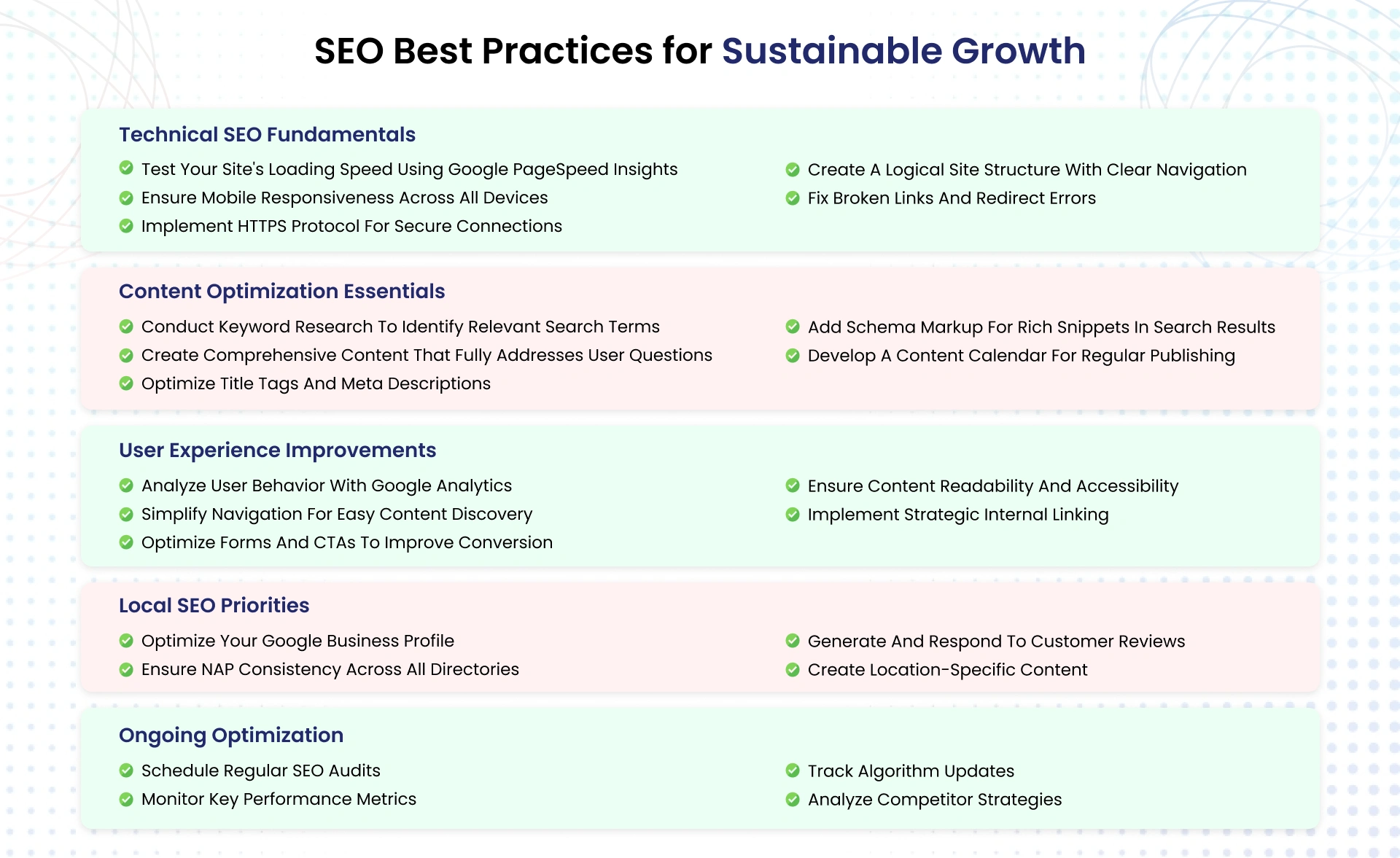
This checklist establishes a foundation upon which to expand. Begin with the items that are most urgent, and then proceed to address the remaining items in a systematic manner. Remember, SEO is a journey, not a quick fix. However, these immediate successes will establish you on the right track to sustainable growth and visibility.
As we've discussed throughout this blog, SEO is more than just a marketing tactic; it's a critical business asset that drives long-term growth. From developing digital equity and trust to gaining competitive advantages and connecting with high-intent visitors, search engine optimization provides compounding returns that paid advertising cannot match. Whether you're a small local business or a growing company, the question isn't "Why is SEO important for business?" but rather "How quickly can you implement an effective SEO strategy before competitors capture your potential customers?"
The path to search visibility may appear complex, but you do not have to take it alone. We've helped countless businesses transform their online presence into powerful growth engines by implementing strategic SEO. Our approach combines technical expertise with business strategy to produce long-term results tailored to your specific objectives. Take the first step today by performing a quick SEO audit on your website using the checklist we've provided. When you're ready to accelerate your digital growth, JanBask Digital Design’s team is here to guide you toward the opportunities waiting in the search landscape.
Discover How SEO Can Grow Your Business Today

E
I now realize why my content wasn’t ranking. This blog nailed the connection between quality content and SEO!
J
As a freelance consultant, this article helped me explain SEO’s long-term benefits to my clients. Super helpful!
K
Boosted my confidence in SEO planning